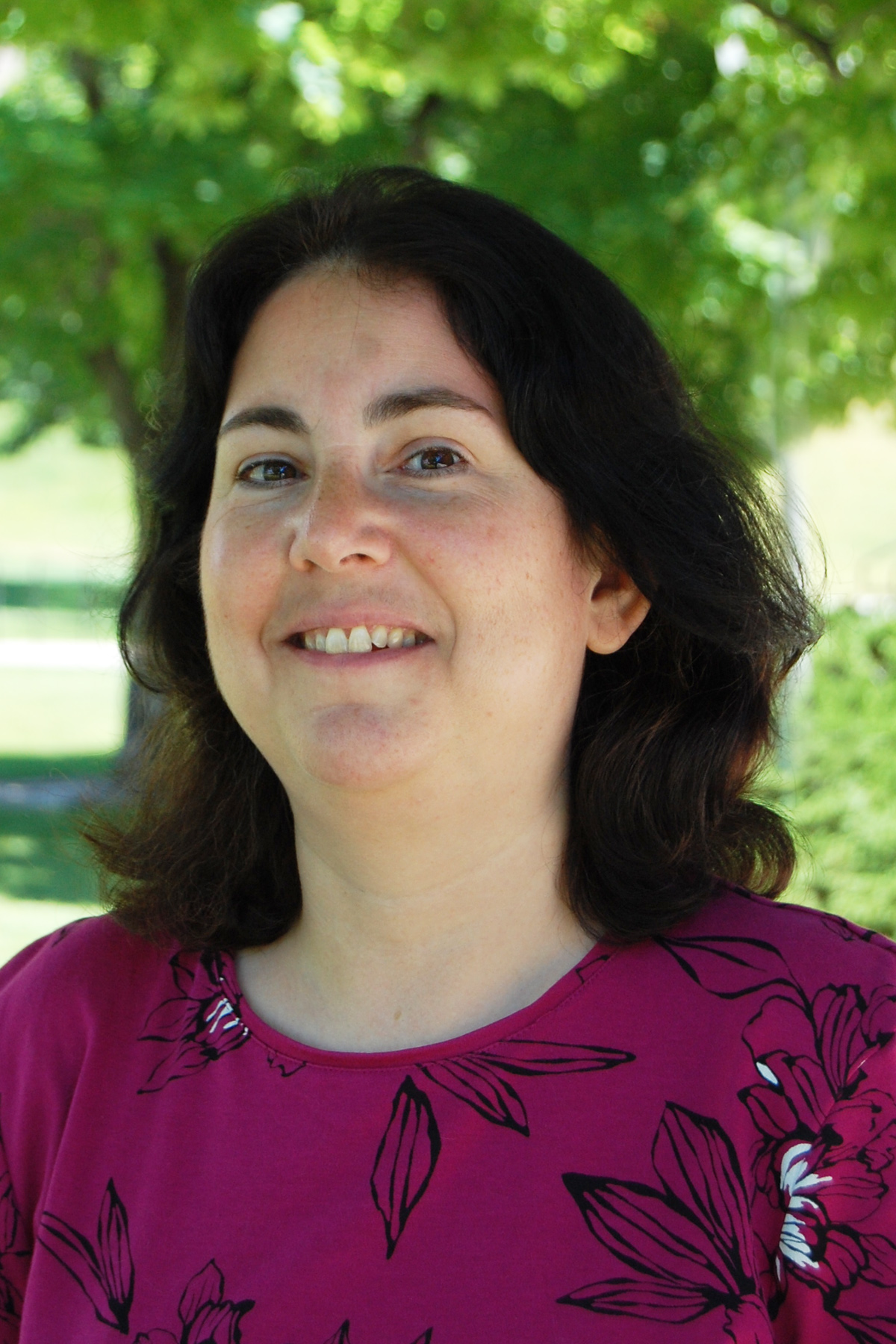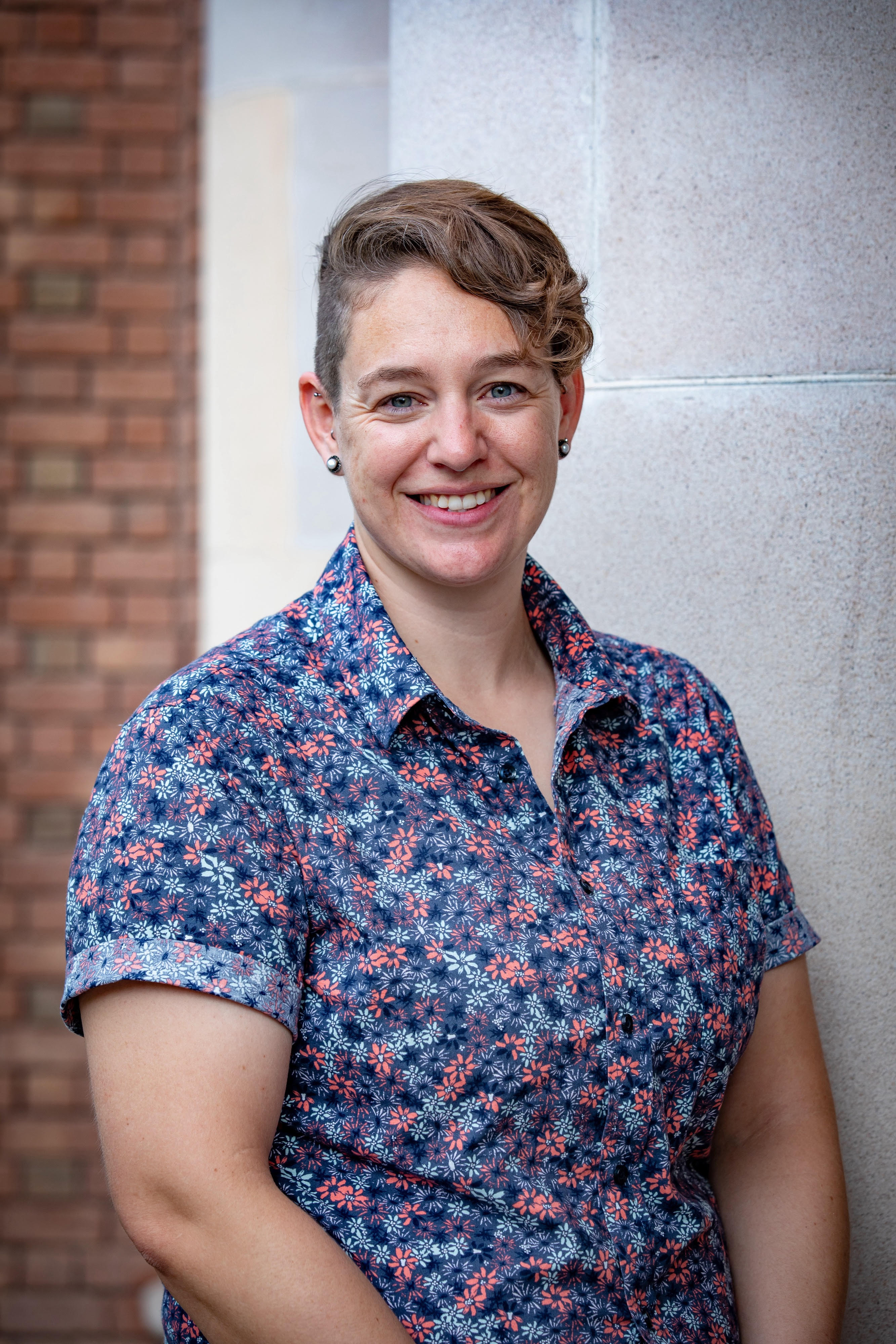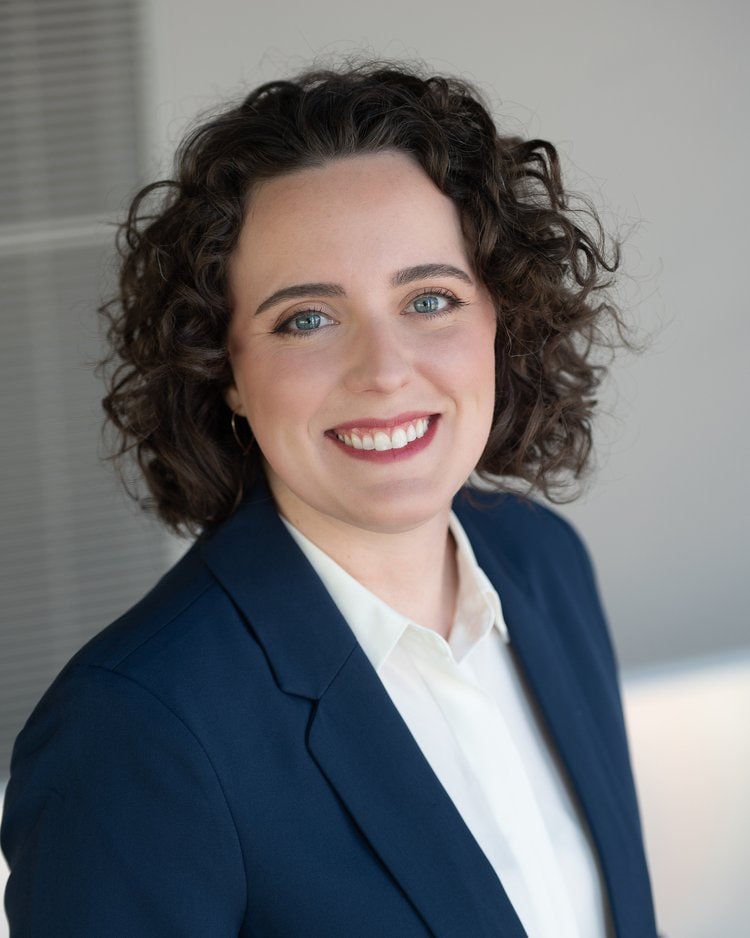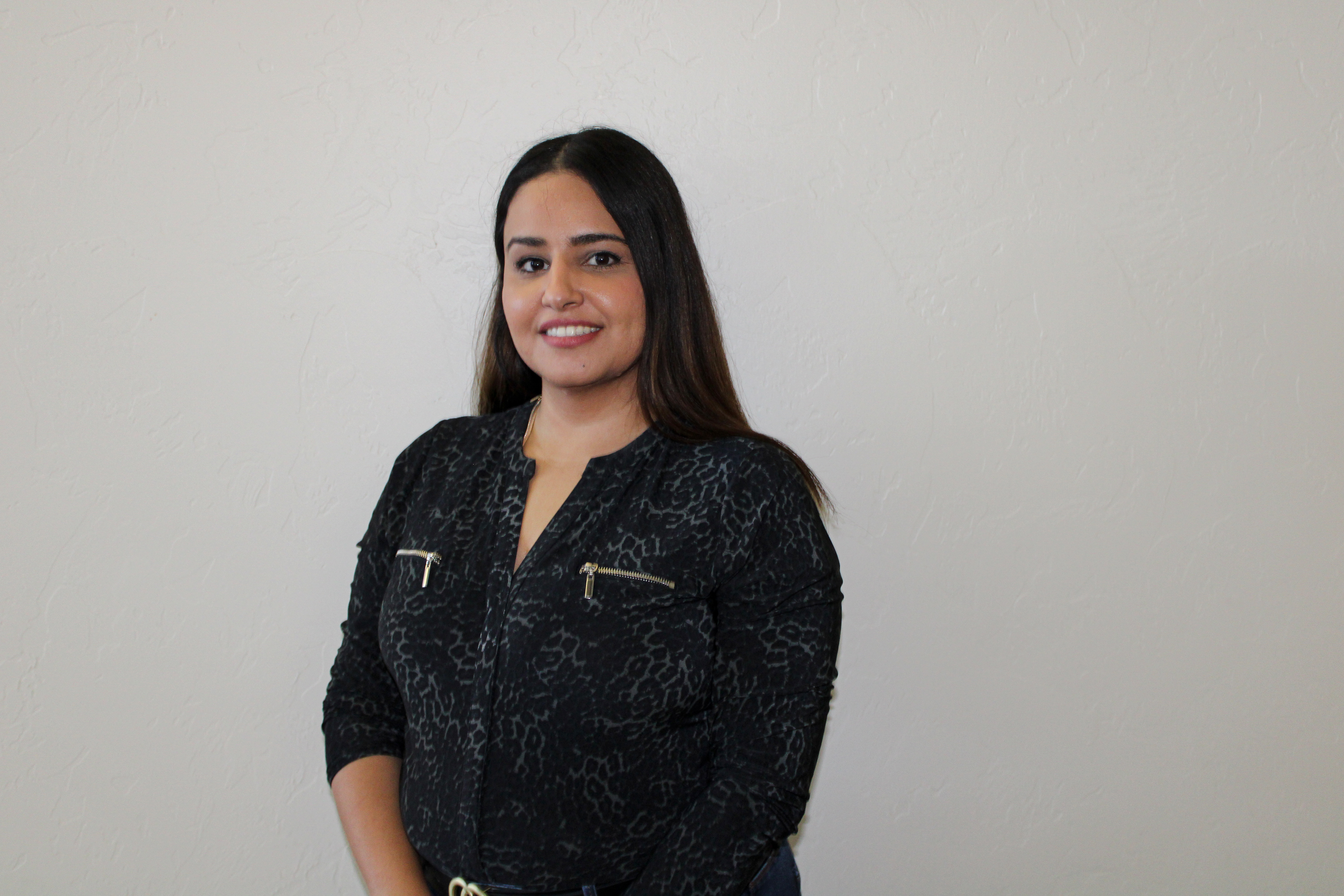2024 WiDS Tucson
⏰ 8:30am-5:30pm MST
The entire conference will be virtual friendly.
If you join us in person or for the watch party, we will be located in Main Library Room B252/254 (map). We will also be providing lunch, so be on the lookout for a sign-up form!
Zoom room passcodes will be emailed to all registrants!
| Room | Zoom link |
|---|---|
| A | https://arizona.zoom.us/j/86110737075 |
| B (morning) | https://arizona.zoom.us/j/83165038123 |
| B (afternoon) | https://arizona.zoom.us/s/84370592126 |
Conference Schedule
| Time | Session | Title | Speaker(s) | Location |
|---|---|---|---|---|
| 8:30am - 9:00am | Opening | WiDS Worldwide official video | - | In person & online Room A |
| 9:00am - 9:45am | Morning Keynote | A non-linear trajectory to data science | Angela Cruze | In person & online Room A |
| 9:50am - 10:05am | Morning Talks | Community-driven web interface development for enabling global scientific sample discovery | Natalie Raia | In person & online Room A |
| 10:10am - 10:25am | Morning Talks | Hate speech and counter speech detection: Conversational context does matter | Xinchen Yu | In person & online Room A |
| 10:30am - 10:45am | Concurrent Morning Talks | Are Women’s Works and Claims Received with More Uncertainty? | Jina Lee | Online (optional in-person watch party) Room A |
| 10:30am - 10:45am | Concurrent Morning Talks | Educators in Data Science Fellowship Opportunities | Angela Marquez | Online (optional in-person watch party) Room B |
| 10:50am - 11:15am | Morning Data Blitz | Sadaf Raoufi Martha Bhattacharya Nathalie Risso Koeun Lim Kyli McQueen Aditi Pala |
See talk titles on data blitz page | Online (optional in-person watch party) Room A |
| 11:20am - 12:20pm | Morning Panels | Interdisciplinary Data Science: A Roundtable Discussion* | Alex Labenz, Bailie Wynbelt, Anna Leach, Karen Barto | Online (optional in-person watch party) Room A |
| 12:20pm - 12:30pm | Break | - | - | |
| 12:30pm - 1:00pm | Lunch + Birds of a Feather sessions |
|
- | Online & in person Rooms A & B |
| 1:00pm - 1:45pm | Afternoon Keynote | Recognizing Implicit Emotions in Text Data | Ellen Riloff | Online (optional in-person watch party) Room A |
| 1:50pm - 2:05pm | Concurrent Afternoon Talks | The Many Aspects of Data Science - Medical Informatics Examples | Gondy Leroy | Online (optional in-person watch party) Room A |
| 1:50pm - 2:05pm | Concurrent Afternoon Talks | Are women really (not) more talkative than men? | Valeria Pfeifer | Online (optional in-person watch party) Room B |
| 2:10pm - 2:25pm | Concurrent Afternoon Talks | Data Rescue: Saving Ecological Data From Extinction | Ellen Bledsoe | Online (optional in-person watch party) Room A |
| 2:10pm - 2:25pm | Concurrent Afternoon Talks | Navigating the Future of Cybersecurity in the Age of Cloud, Containers, and AI | Dalal Alharthi | Online (optional in-person watch party) Room B |
| 2:30pm - 2:55pm | Afternoon Data Blitz | Stephanie Marbella Eldridge Wisely Kristi Manasil Julia Fisher Sarah Bratt Ava Naffah Lanie Galland |
See talk titles on data blitz page | Online (optional in-person watch party) Room A |
| 2:55pm - 3:20pm | Closing Discussion | How to continue to build Tucson WiDS community! | - | Online & in person Room A |
| 4:00pm - 6:00pm | Social | - | - | Snakes & Lattes (988 E University Blvd, Tucson, AZ 85719) |
*Morning panel theme: Entering data science from a non-STEM background or transitioning into a new discipline after having been in a STEM field
Speakers
Keynote speakers

Ellen Riloff
Professor and Department Head, Computer Science, University of Arizona
Angela Cruze
Director of Programming & Operations, Institute for Computation & Data-Enabled Insight, University of Arizona
Invited speakers

Xinchen Yu
I am an Assistant Professor of Practice in the Computer Science Department at University of Arizona. I received my Ph.D. from University of North Texas in 2023. My research interests lie at the intersection of natural language processing (NLP) and Computational Social Science (CSS). Specifically, I am passionate about utilizing data-driven methods to support online safety and facilitate communications between people.
Valeria Pfeifer
I am a postdoctoral researcher studying language using a neuro-cognitive and a phenomenological lens. Specifically, my research aims to understand what language reveals about a speaker beyond its linguistic content, for example emotional or cognitive states. I currently work at the Naturalistic Observation of Social Interaction Lab in the Psychology Department at the University of Arizona, where I also obtained a Ph.D. in Psychology in 2022. Beyond research, I am involved in the Research Bazaar data science community.

Ellen Bledsoe
Ellen Bledsoe is an Assistant Professor of Practice in the School of Natural Resources and the Environment at the University of Arizona. She teaches primarily undergraduate courses with data science components (data management in spreadsheet, introduction to R, etc.). Ellen is trained as a community ecologist; during her PhD, she studied long-term dynamics of desert rodents in the Chiricahuas and is happy she has landed back in the Arizona desert.
Gondy Leroy
Gondy Leroy is Professor in MIS and Associate Dean for Research at the University of Arizona. Before coming to Eller in 2013, she joined Claremont Graduate University after earning her PhD in Management Information Systems from the University of Arizona in 2003. Her research focuses on natural language processing and machine learning with a practical and positive impact. Current example projects are the creation of an online editor for text and audio simplification and automated annotation of behaviors matching diagnostic criteria of autism spectrum disorders (ASD) in EHR. She has won grants from NIH, AHRQ, NSF, Microsoft Research, and several foundations totaling $5.7M as principal investigator, and another $2.1M as co-investigator. She earned a BS/MS degree (1996) in experimental psychology from the University of Leuven (1996) in Belgium and a MS (1999) and PhD (2003) degree in management information systems from the University of Arizona. In addition to her research, she wrote the book “Designing User Studies in Informatics” (Springer, 2011) and is an active contributor to increasing diversity and inclusion, e.g., through her “Tomorrow’s Leaders Equipped for Diversity” program at the Eller College of Management.
Jina Lee
Jina Lee is a Ph.D. Candidate in Sociology at the University of Arizona. Her research program explores the processes and consequences of valuation: the social process through which importance, worth, or significance is assigned to ideas, practices, or contributions. She primarily focuses on which novel discoveries are viewed as important in science, and how this affects scientific progress. She also examines how gender and race shape decisions of what is important, and how this reinforces existing inequality. Her work contributes to the sociology of science and knowledge, gender, medical sociology, and culture. She employs diverse methods such as computational text analysis and survey-based experiments. Her research is published in American Sociological Review, Socius, and Journal of Social Entrepreneurship.

Natalie Raia
Natalie Raia is a Postdoctoral Research Associate in the School of Information at the University of Arizona. A geoscientist by training, her current research focuses on studying physical sample collection and reuse practices of scientists in order to inform improvements to the functionality and usability of next-gen digital sample and data repositories. She also conducts mapping of data systems to support increased interoperability and participates in community engagement and guideline development to enable scientists to make their data more discoverable and reusable. Natalie holds a Ph.D. in geology from the University of Minnesota, and a B.S. in geology and B.A. in Plan II Liberal Arts Honors from the University of Texas at Austin.

Dalal Alharthi
Dr. Dalal Alharthi is an Assistant Professor in the Cyber, Intelligence, and Information Operations (CIIO) Department at the University of Arizona. Holding a Ph.D. in Computer Science from the University of California, Irvine, and dual master’s degrees, her academic credentials are as broad as they are deep. Before transitioning to academia, Dr. Alharthi gained valuable hands-on experience in the cybersecurity industry through roles such as a Cloud Security Engineer at Farmers Insurance, a Resident Engineer at Palo Alto Networks, and a Prisma Cloud Consultant at Dell. Her professional journey has spanned several countries, providing her with a rich perspective from working in both Eastern and Western contexts. This diverse experience, combined with her significant contributions to both industry and academia, has equipped her with a unique insight into the field of cybersecurity. Dr. Alharthi is dedicated to sharing her knowledge, focusing on the development and education of the next generation of cybersecurity professionals in this rapidly changing discipline, while also actively promoting diversity and inclusion to bridge the gender gap in STEM fields and create a more equitable and vibrant scientific community.
Angela Marquez
Yá’át’ééh! Shí éí Angela Marquez yíníshyé’. Táchii’nii nishłį́ áádóó Tł’ááshchí’í ’éí bá shíshchíín. Kinyaa’áanii ’éí dashicheii áádóó Tábąąhí ’éí dashinálí. My name is Angela Marquez and I am Diné, indigenous to Leupp, AZ on the Navajo Nation. I have learned from my family the importance of considering relational accountability and in what ways we are supporting our community. For me, education with the focus on Native Nation building helps me consider the ethical implications of our actions and how they affect our way of life, our foods, our air, our lands, our water, our mother, earth; in an effort to maintain hózhó, or harmony with our world and each other. My current work with the Data Sciences Academy connects me to educators across the state of Arizona and allows me to find ways to support our educators in data science education. Let’s connect! I’d love to chat more. I can be reached at ayazzie@arizona.edu. Ahéhee! Talk soon!
Panelists
Alex Labenz
M.A. Student, Division for Late Medieval and Reformation Studies, University of Arizona
Bailie Wynbelt
B.S. Student, Information Science with an emphasis in Data Science, University of Arizona
Anna Leach
PhD Student, School of Information with a minor in Teaching, Learning and Sociocultural studies, University of Arizona
Karen Barto
Writing Specialist, Writing Skills Improvement Program, College of Humanities, University of Arizona
Data Blitz
🗓️ Date 3/29/24
⏰ Time 10:50-11 a.m.
The WIDS Tucson Data Blitz sessions will be short (3-minute) talks from members of the WIDS community. A slide template will be provided - you just need to tell us about your exciting work!
We will have a morning session and, if needed, an additional afternoon session. Within each session, attendees will vote on their favorite talks. This will be a low-stakes opportunity to get recognition for your presentations!
| Talk Title | Speaker |
|---|---|
| Predicting the health outcomes from genome sequence | Sadaf Raoufi |
| Integrating Genetics and Machine Learning to Understand ALS Susceptibility | Martha Bhattacharya |
| AI driven cyber physical systems in safety | Nathalie Risso |
| Patient sentiment: an emerging measure of pain-related mental state using language AI | Koeun Lim |
| Less Sleep During the Wake Cycle After Repeated Closed Head Injury | Kyli McQueen |
| Ethical Data Mining- Deciphering Social Media Sentiments with NLP & GenAI | Aditi Pala |
| An Analysis of Flight Delays in New York City from 2013 | Stephanie Marbella |
| Using DNA from Water to Study Endangered Sharks | Eldridge Wisely |
| Development of Cohort Analytics | Kristi Manasil |
| A Bayesian Gaussian Graphical Model with Embedded Dirichlet Process Mixture Model Approach to Estimating Neural Functional Connectivity | Julia Fisher |
| Extracting geographic names as wikidata entities from scientific article abstracts using zero-shot learning | Sarah Bratt |
| Feel Flows | Ava Naffah |
| Using genomic data to conserve native species | Lanie Galland |
Sponsors
Thank you to our sponsors!
